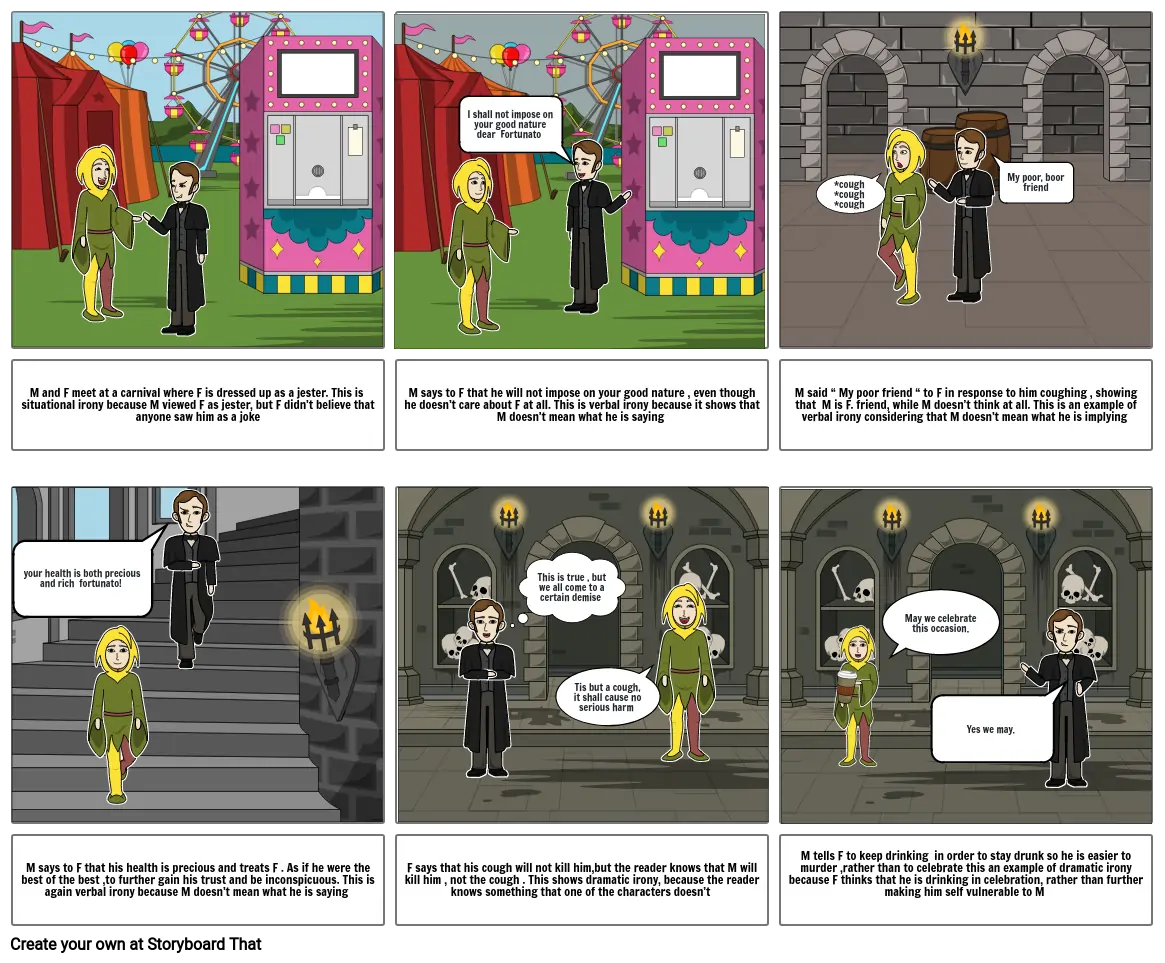Types of irony

Storyboard Tekst
- I shall not impose on your good nature dear Fortunato
- *cough *cough *cough
- My poor, boor friend
- M and F meet at a carnival where F is dressed up as a jester. This is situational irony because M viewed F as jester, but F didn’t believe that anyone saw him as a joke
- your health is both precious and rich fortunato!
- M says to F that he will not impose on your good nature , even though he doesn’t care about F at all. This is verbal irony because it shows that M doesn’t mean what he is saying
- This is true , but we all come to a certain demise
- Tis but a cough, it shall cause no serious harm
- M said “ My poor friend “ to F in response to him coughing , showing that M is F. friend, while M doesn’t think at all. This is an example of verbal irony considering that M doesn’t mean what he is implying
- May we celebrate this occasion.
- Yes we may.
- M says to F that his health is precious and treats F . As if he were the best of the best ,to further gain his trust and be inconspicuous. This is again verbal irony because M doesn’t mean what he is saying
- F says that his cough will not kill him,but the reader knows that M will kill him , not the cough . This shows dramatic irony, because the reader knows something that one of the characters doesn’t
- M tells F to keep drinking in order to stay drunk so he is easier tomurder ,rather than to celebrate this an example of dramatic irony because F thinks that he is drinking in celebration, rather than further making him self vulnerable to M
Izrađeno više od 30 milijuna scenarija

